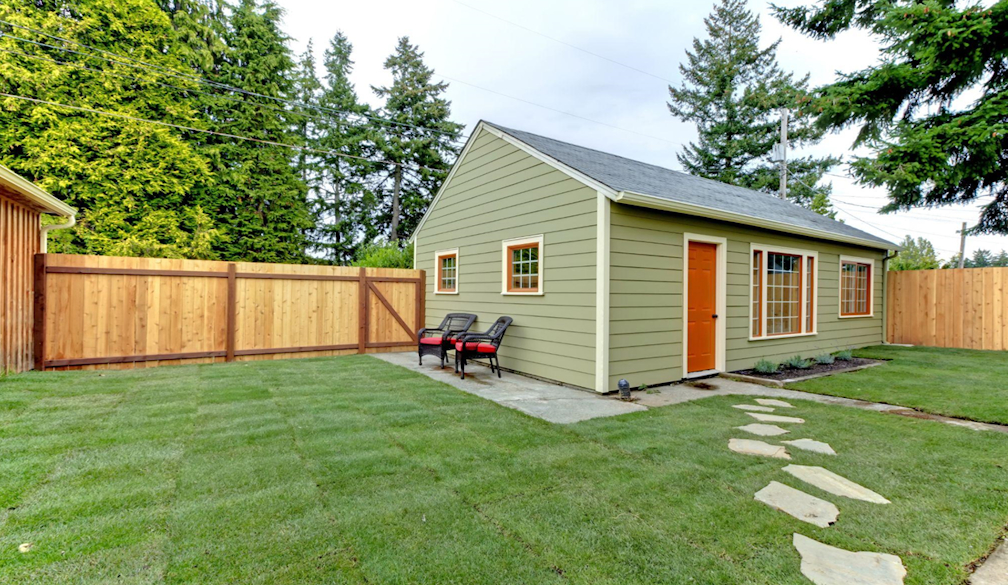7 Key Points: The Rise of Granny Flats in Australia Amid Regulatory Changes

In the ever-evolving landscape of Australian housing, there's a new trend that's capturing the attention of homeowners, investors, and developers alike: the rise of granny flats. These compact, versatile living spaces are no longer just the domain of the elderly relative in the backyard. With a blend of regulatory changes, economic pressures, and shifting societal norms, granny flats are emerging as a dynamic solution to Australia's housing puzzle. Dive into the seven key points that highlight this trend and explore the multifaceted reasons behind its surge.
1. Surging Demand for Granny Flats:
Australia is witnessing a boom in the demand for granny flats. This surge is attributed to both investors and landowners, with the former seeking profitable short-term rental opportunities and the latter looking to accommodate multiple generations within one property.
Additionally, the flexibility and affordability of granny flats make them an attractive option for many. As urban areas become more congested and property prices continue to soar, these compact living solutions offer a practical alternative to traditional housing.
2. Multi-Generational Living:
The trend of multi-generational living is gaining traction in Australia due to rising living costs and the financial challenges associated with housing, childcare, and healthcare expenses. Families are exploring shared living arrangements to pool resources and reduce individual expenses.
This shift isn't just about economics. It's also about fostering stronger family bonds, bridging generational gaps, and creating a supportive environment where family members can lean on each other in times of need.
3. Victoria’s Regulatory Landscape:
Victoria is at the forefront, with proposed regulatory changes potentially fueling the granny flat market further. These changes, although not explicitly detailed, are anticipated to ease restrictions and offer more flexibility in granny flat constructions and usage.
Such progressive steps by the Victorian government could set a precedent for other states to follow, potentially leading to a nationwide renaissance in granny flat constructions and their varied applications.
4. Investors Eyeing Short-Term Rentals:
Investors are capitalizing on the granny flat trend by constructing high-quality studios for listing on short-term rental platforms like Airbnb, highlighting the lucrative prospects in this market segment.
Beyond just the financial gains, these rental opportunities are also enhancing local tourism. Visitors are increasingly seeking authentic, home-like experiences, and granny flats offer a unique blend of comfort and local charm.
5. Developers Adapting to Market Needs:
Developers and builders are modifying their strategies to cater to the rising demand for granny flats and multi-generational living solutions. They are offering more flexible designs and incorporating additional features to meet the diverse needs of homebuyers.
Innovation is key in this evolving market. Forward-thinking developers are not only focusing on functional designs but also ensuring that these spaces are sustainable, energy-efficient, and in harmony with the surrounding environment.
6. Economic Implications:
The economic implications of the granny flat boom are multifaceted. The construction sector is under pressure to meet the increasing demand, while homeowners and investors explore granny flats as a means to alleviate financial strains and maximize returns through high rents and low vacancies.
Moreover, local economies can benefit from the influx of short-term renters who contribute to the community by patronizing local businesses, restaurants, and attractions. This ripple effect can lead to job creation and boost local tourism.
7. Potential Market Growth:
The intersection of rising demand, potential regulatory amendments in Victoria, and evolving consumer preferences is setting a new trajectory for the housing sector in Australia. The granny flat market is poised for significant growth, offering new possibilities for developers, investors, and homeowners in the realm of multi-generational living and housing diversity.
As societal dynamics change and the concept of 'home' evolves, the Australian housing market is on the cusp of a revolution. Granny flats, once seen as mere additions, are now becoming central to discussions about the future of housing in the country.
The resurgence of granny flats in Australia is more than just a fleeting trend; it's a testament to the adaptability and resilience of the housing market in response to changing needs and challenges. As multi-generational living becomes more prevalent and the benefits of flexible housing solutions become undeniable, granny flats stand out as a beacon of innovation and practicality. Whether you're an investor eyeing the next big opportunity, a developer keen on meeting market demands, or a homeowner looking for versatile living solutions, the granny flat wave is one you'll want to ride. The future of Australian housing is here, and it's compact, adaptable, and incredibly promising.




